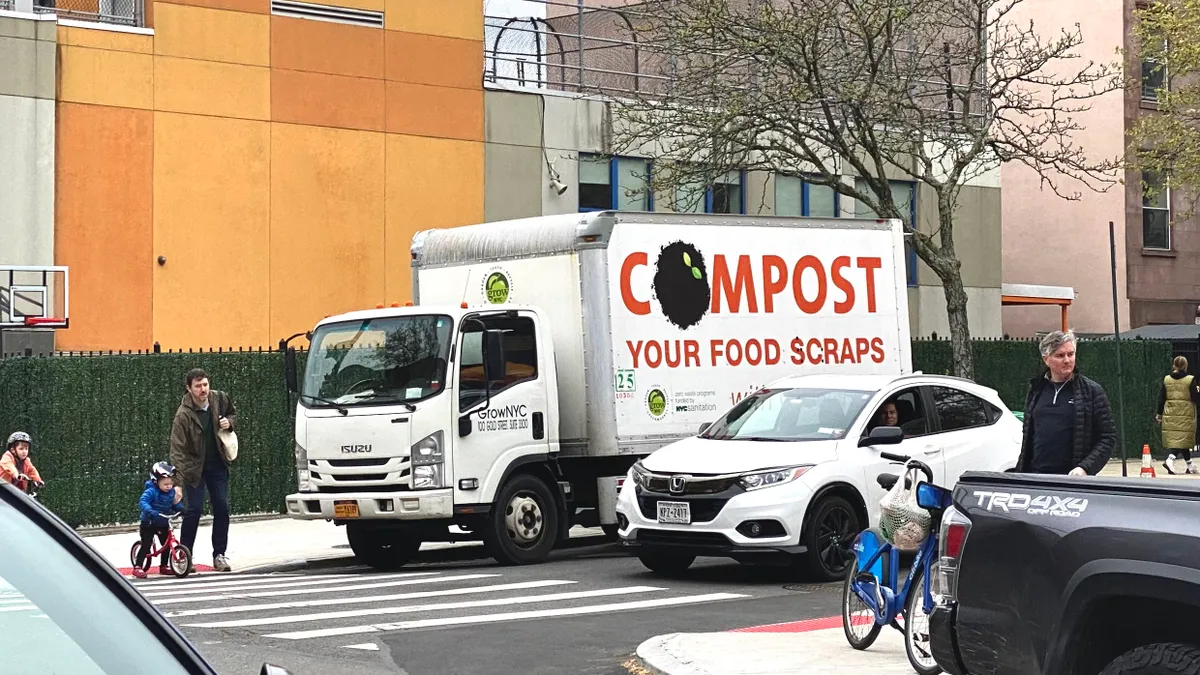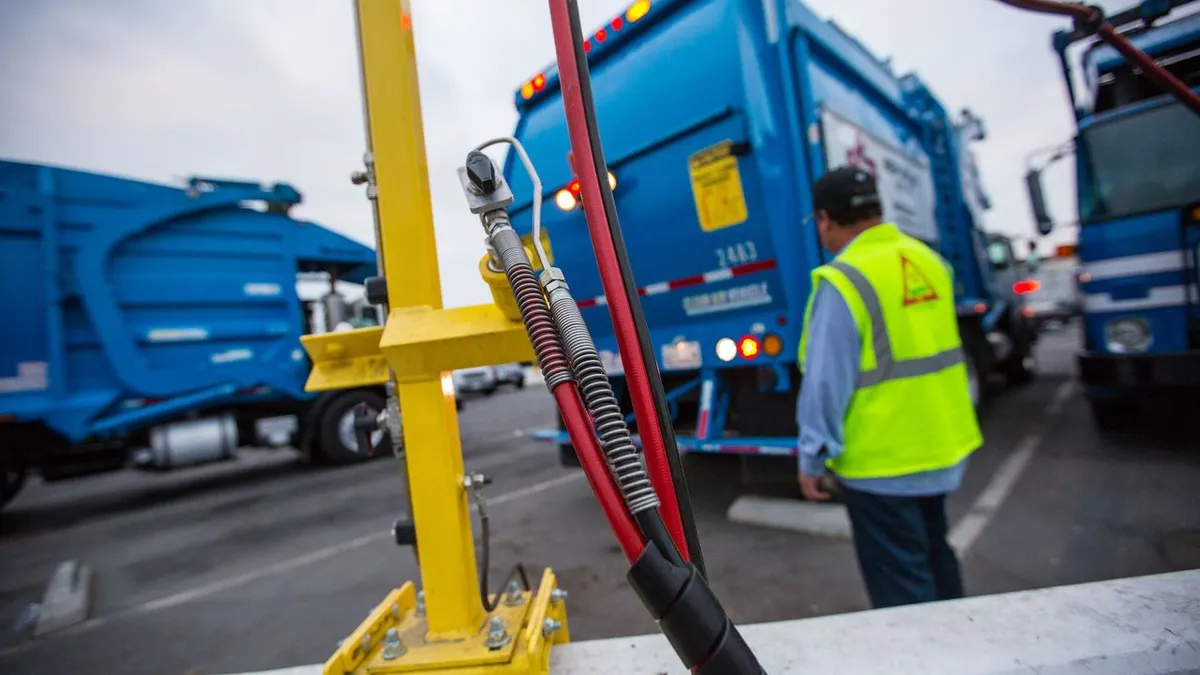New York City environmental nonprofit GrowNYC is shutting down several community programs as emergency funding that's kept them afloat since December expires. Farmer's market food waste drop-offs, a school composting initiative and regular swap meets will be discontinued as part of the move.
The programs have been on thin ice since November, when Mayor Eric Adams required all city agencies to reduce their costs in the face of a budget shortfall. The city’s Department of Sanitation zeroed out $3 million in funding for the city's Community Compost Program for fiscal year 2024 as part of those cuts, prompting several nonprofits that have long relied on the program to wind down their activities.
GrowNYC was able to continue some of its programming thanks to emergency funding from outside donors, but that money is running out. The funding has supported 53 positions, according to previous statements from the GrowNYC Workers Collective.
Courtney Scheffler, a compost driver for GrowNYC, said the nonprofit negotiated with the workers’ union to cut costs by shutting down some low-performing sites and consolidate pickup routes in recent months. Workers were initially hopeful that the emergency funding would support them through the end of New York City’s fiscal year in June. Instead, unionized workers operating the compost program will be laid off by May 20 and those working with schools and the swap meet program will wrap up their work by the end of June, GrowNYC announced on LinkedIn.
“It's definitely such a disservice to the communities we serve,” Scheffler said.
GrowNYC collected about 2.2 million pounds of food scraps in 2023 and has collected more than 24 million pounds since 2011, according to its 2023 impact report. Its website lists about 50 drop-off sites throughout the city and now features “Last Day Info” for each location.
The Adams administration has made organics recycling a priority in its sanitation strategy, rolling out separate bins for organics to most residences in Brooklyn and Queens last year. That program is scheduled to expand to the remaining boroughs later this year. DSNY has also added a number of orange organics recycling drop-off bins on streets around the city.
But environmental activists have criticized the program, which sends most materials to be codigested at an anaerobic digestion facility in Brooklyn rather than composting facilities in and around the city. Scheffler said GrowNYC has routed more of its organic material to composting operations in Long Island rather than in the city, in part because of that strategy.
Members of the New York City Council have been vocal in their support for community composting, rallying in front of City Hall in December and vowing action through the budget process. Shan Abreu, chair of the council’s sanitation committee, called GrowNYC "a fixture of our city" in an emailed statement addressing the shutdown.
"Our communities will feel this loss," he said. "These cuts not only hamstring New Yorkers that want to practice environmentally-conscious habits, they upend the lives and careers of GrowNYC workers who are building a cleaner, greener city for all of us."
The council member also vowed to continue pressing the Adams administration to reinstate funding for the program. Abreu said the council's budget negotiations team is making the community composting program a priority. He also noted his committee will hold a joint hearing with the council's finance committee in May "to press the issue once more."
"Our communities and our council are resolute: this budget is not complete without full restorations to community composting," Abreu said.
GrowNYC workers are still hopeful that the process will lead to a restoration in funding for their composting work, Scheffler said. She’s planning to continue working with the nonprofit’s Greenmarkets program for the time being while seeking outside work to replace the income she made from the composting program.
The union will also continue to advocate for the remaining workers and the restoration of funding, Scheffler said. The workers’ union, organized through the Retail, Wholesale and Department Store Union, also ensured laid-off employees will receive a severance package. They’re also negotiating to ensure GrowNYC calls back laid off workers first if the city restores funding for the Community Composting Program, though that procedure is less certain if the nonprofit decides to fund its programs through private donors instead, according to Scheffler.
Residents will have to navigate a more fractured organics landscape in the meantime. Scheffler described meeting someone at GrowNYC’s Parkchester food scraps drop-off sites in The Bronx who was excited to find a place to bring their organics, but she had to warn them that the site would soon shut down.
“We had to tell them this won’t be here much longer,” Scheffler said. “There will be people that will not be able to compost anymore because of the budget cuts.”



















